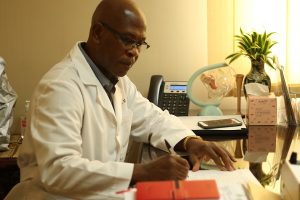The first sign of a woman’s reproductive life is the development of secondary sexual characteristics (such as breast development) and the onset of cyclical menstrual bleeding (menses). Failure of menstrual periods to occur by age 15 years in patients with normal growth and secondary sexual characteristics, warrants an investigation.
If you have no menstrual period by age 13 years and have no signs of puberty (eg breast development), this should be evaluated by your GYN physician.
Once established, the menstrual cycle is usually regular and occurs about every 28 days, and each period lasts about 3-5 days. Menstrual cycles that occur more frequently than every 21
days are abnormal, and menstrual bleeding that lasts for more than 7 days is also abnormal and should be investigated.
The cessation of menses for more than 3 cycles in a patient with previously established and regular menstrual cycles, warrants an investigation. If menstrual periods were previously irregular, then it may be okay to wait for 6 months before an investigation.
A menstrual period may be accompanied by some breast and pelvic discomfort and mood changes, but significant pelvic/abdominal pain or depression, warrants investigation. There are several causes of menstrual disorder such as fibroids, endometriosis, hormonal changes eg in PCOS and menopause. It is very important to know your body and report, early, any abnormal changes in your menstrual cycle, changes in the duration of your period or changes in the symptoms associated with your period to your NOVA physician. This will enable the physician to perform the necessary evaluation for early diagnosis and treatment.

Please inform your NOVA surgery center physician of any irregularities in your menstrual cycle or menstrual period.
To request for appointment by phone call
+233-302-751-290

